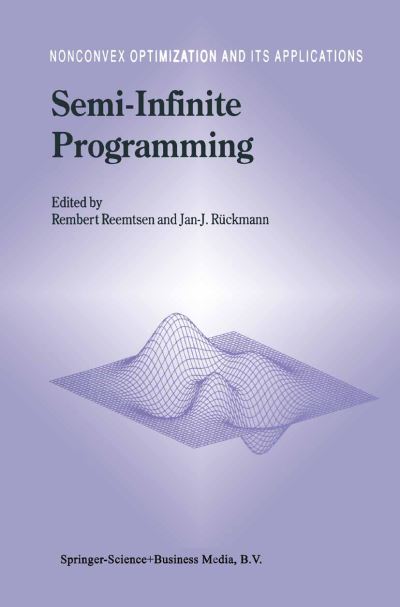
Semi-infinite programming (briefly: SIP) is an exciting part of mathematical programming. SIP problems include finitely many variables and, in contrast to finite optimization problems, infinitely many inequality constraints. Prob- lems of this type naturally arise in approximation theory, optimal control, and at numerous engineering applications where the model contains at least one inequality constraint for each value of a parameter and the parameter, repre- senting time, space, frequency etc., varies in a given domain. The treatment of such problems requires particular theoretical and numerical techniques. The theory in SIP as well as the number of numerical SIP methods and appli- cations have expanded very fast during the last years. Therefore, the main goal of this monograph is to provide a collection of tutorial and survey type articles which represent a substantial part of the contemporary body of knowledge in SIP. We are glad that leading researchers have contributed to this volume and that their articles are covering a wide range of important topics in this subject. It is our hope that both experienced students and scientists will be well advised to consult this volume. We got the idea for this volume when we were organizing the semi-infinite pro- gramming workshop which was held in Cottbus, Germany, in September 1996.
| ISBN: | 9781441947956 |
| Publication date: | 3rd December 2010 |
| Author: | R Reemtsen, JanJ Rückmann |
| Publisher: | Springer an imprint of Springer US |
| Format: | Paperback |
| Pagination: | 428 pages |
| Series: | Nonconvex Optimization and Its Applications |
| Genres: |
Software Engineering Management decision making Mathematical modelling Maths for engineers Operational research Optimization |